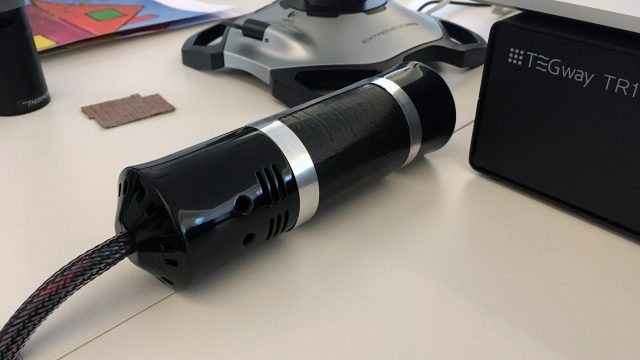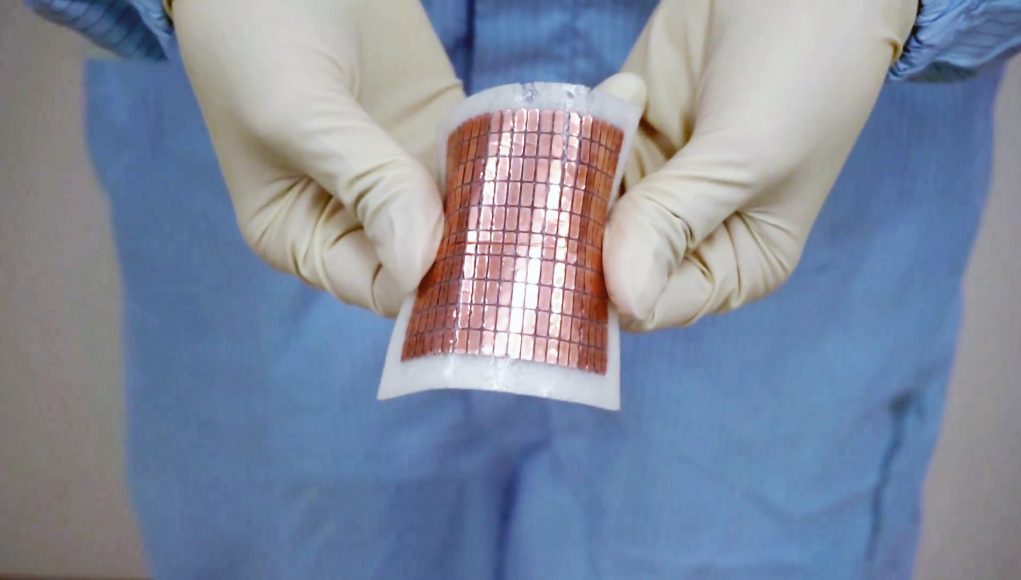Lingering Questions
TEGway’s ThermoReal demo is in many ways promising, but there’s a number of questions that still need to be answered to determine practicality of use for VR.
 For one, the prototype device I saw was wired and connected to a large box. Exactly how much energy is required to achieve the levels of hot and cold that I felt is unknown to me. Ideally integration with VR controllers or gloves would be wireless and thus battery-operated. In order to not churn through batteries, the device would need to be very efficient.
For one, the prototype device I saw was wired and connected to a large box. Exactly how much energy is required to achieve the levels of hot and cold that I felt is unknown to me. Ideally integration with VR controllers or gloves would be wireless and thus battery-operated. In order to not churn through batteries, the device would need to be very efficient.

Another question is how much bulk it would add when integrated. The prototype wand I used was relatively large (a little bigger than a Vive controller) but only contained the electronics for the thermal haptics (no tracking or buttons). The thermoelectric skin itself is very thin and flexible, but it isn’t clear to me yet how much supporting hardware is required for it to achieve the speed and amplitude of the thermal haptics that I felt in the demo.
And of course there’s cost. TEGway says they’ve already manufactured a large scale batch of engineering samples, and that a commercial production run of the device is due in late 2017 or early 2018. How much the materials add to the cost of VR hardware is a major unanswered question at the moment, and so too is the durability of the skin itself and whether the fluctuating temperature could have a long-term impact on the durability of the device in which ThermoReal is integrated (as fast and large temperature fluctuations can lead to excess material stress through expansion and contraction).
These are questions we’ll have in mind as we continue to follow the development of this interesting thermal haptic device.







